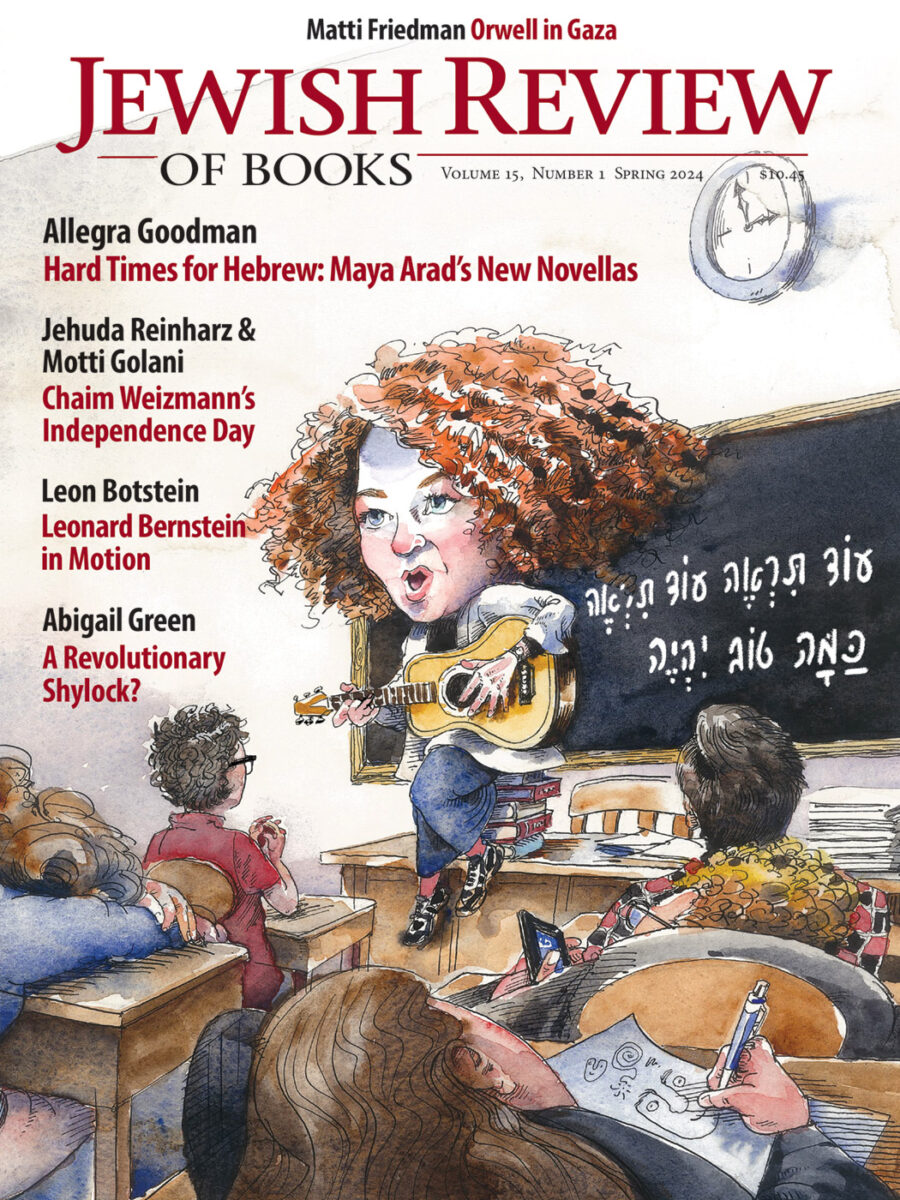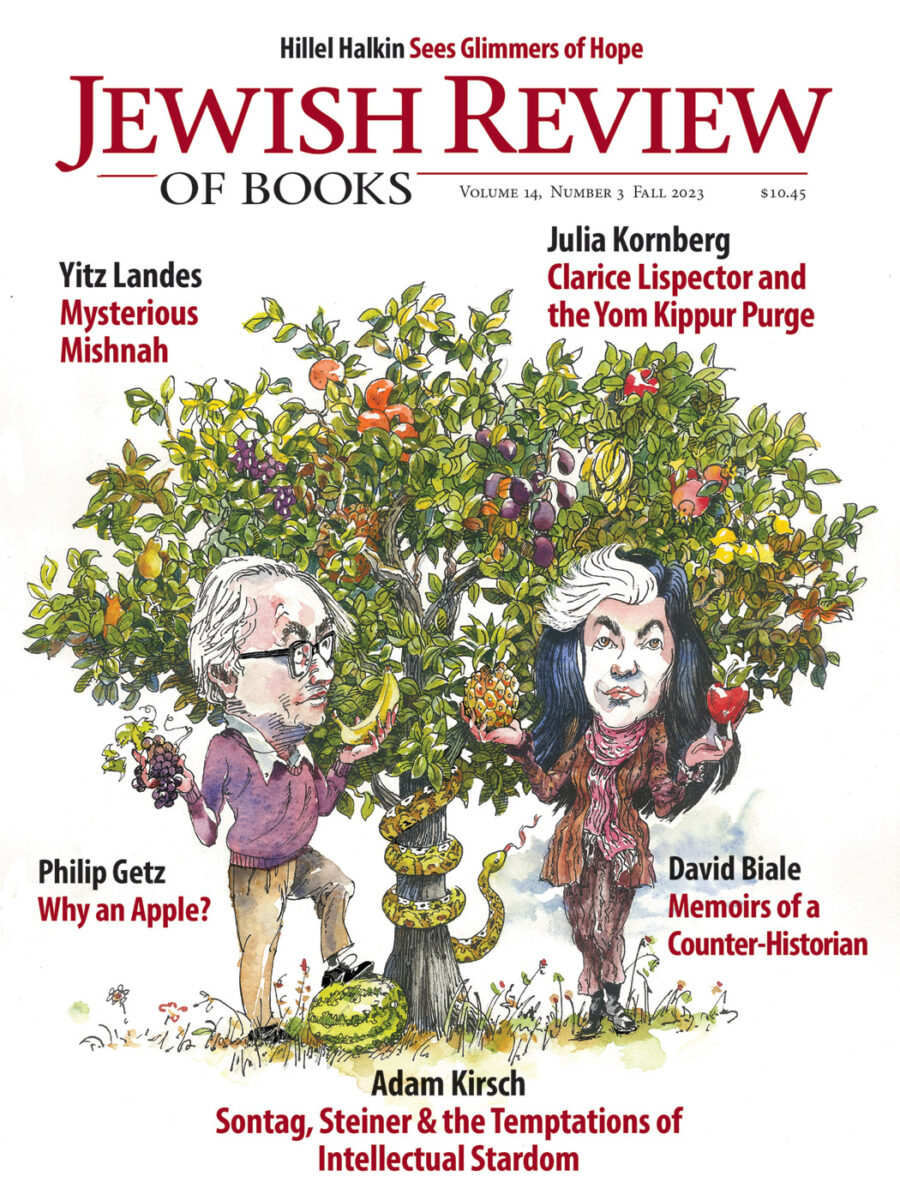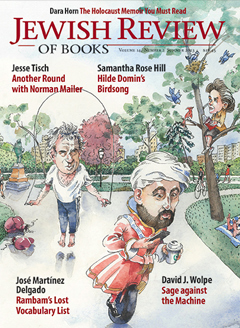Letters
Letters, Winter 2019
Was Newton a Magician?, Don't Forget Pumbedita!, Was Herzog Crazy?
Features
Robert Alter’s Bible: A Symposium
Ronald Hendel, Aviya Kushner, Shai Held, David Bentley Hart, Adele Berlin, Adam Kirsch
In the 14 years since he published the Five Books of Moses, Alter has steadily progressed through the Tanakh, producing translations that aim at something like a 21st-century American equivalent of what he has called the “simple yet grand” English of the King James Version, while attending closely to the literary techniques of the Hebrew text. We asked a learned, eclectic group of six critics to discuss the results.
Pittsburgh Jews, Squirrel Hill, and the Tree of Life
In the wake of the recent massacre, a local historian tells the story of the Pittsburgh Jewish community and the 154-year-old Tree of Life synagogue.
Digital Anti-Semitism: From Irony to Ideology
From tweeting trolls to digital incitement, a contemporary history.
Reviews
Historical Agency
Among the many papers discovered in the Cairo Geniza are documents, including letters between Yeshua ben Ismail of Alexandria and Khalluf ben Musa in Qayrawan, in present-day Tunisia. The papers showing disintegration of their partnership shine a light on how a particular kind of business agreement affected the composition of a halakhic guidebook still widely consulted to this day.
Workday Jews
In their respective books, Chad Alan Goldberg and Eliyahu Stern address the question of whether the Jews are the quintessentially modern people or a people who came to modernity late and with a sudden shock. They reach very different conclusions.
Counting Jews
Tim Grady makes a careful but controversial case about the way Jews contributed to or supported Germany's worst excesses in World War I.
Confusion and Illusions: 1939
In their new book, Jehuda Reinharz and Yaacov Shavit focus on the efforts of the leaders of a diverse and disunited Jewish people in Europe, the United States, and Palestine to cope with this crisis in the years leading up to World War II.
The Homecoming
A 1977 Jerusalem Post article on Harold Pinter's visit to Israel was enticing but short on details. Pinter had just been to the Dead Sea (“hot!”) and Mount Masada (“high!”) and was planning to visit a cousin who lived on a kibbutz.
Lenin and Maimonides
Lenin and Maimonides, Communist leaflets and Hebrew verse: What could be more different, in language, in sensibility, in world view?
Freethinker
Melanie Phillips had stumbled into the culture wars by, as she herself describes it, “the staggering tactic of actually observing what was going on.”
Doron Rabinovici and the Crisis of European Jewish Identity
To live in Vienna as a Jew is also to be reminded that those who perpetrated the Shoah were defeated yet, unlike the victims, were able to resume their lives afterwards.
Readings
Who Tried to Kill Spinoza?
According to early biographers, somebody tried to kill Spinoza on the streets of Amsterdam. Is the story true, and, if so, who were his attackers?
Chaim of Arabia: The First Arab-Zionist Alliance
Chaim Weizmann regarded his 1919 agreement with Emir Faisal as an epoch-making treaty. That didn’t turn out to be the case, but a century later an Arab-Zionist alliance may be reemerging.
The Arts
Yiddish Heroism, Hebrew Tears
For Avraham Sutzkever, life and work were not even slightly separate, since his was a life not merely shaped by poetry in a metaphorical sense but literally saved by it, when a poem of his produced an airplane.
Last Word
Books vs. Children
"Apparently it is very troubling for children to see their parents working, at least doing the kind of work that does not make itself visibly obvious."
Past Issues

Issue No. 57
Spring 2024

Issue No. 56
Winter 2024

Issue No. 55
Fall 2023

Issue No. 54